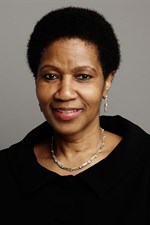
Top stories






More news


Marketing & Media
Ads are coming to AI. Does that really have to be such a bad thing?














"Women are beaten in their homes, harassed on the streets, bullied on the internet. Globally, one in three women will experience physical or sexual violence at some point in her life. The World Health Organisation has declared violence against women to be a global health problem of epidemic proportions," says Phumzile Mlambo-Ngcuka, executive director of UN Women.
More often than not, violence against women is committed by an intimate partner. Of all women killed in 2012, almost half died at the hands of a partner or family member. It is not an exaggeration but a fact that the overall greatest threat to women's lives is men, and often the men they love.
"In some conflict situations, it may be more dangerous to be a girl or a woman than to be a soldier. Violence against women has become a real epidemic that must be stopped. Yet we know how violence against women can be eliminated. In 1995, close to 20 years ago, 189 governments came together in Beijing."
"They adopted a platform for action that spelled out key strategies for governments, civil society, the private sector, international partners and all stakeholders to end violence against women, empower women, and achieve gender equality. Last year, the UN Commission on the Status of Women further defined what needs to be done.
"This includes effective prevention strategies that address the root causes of gender inequality and the lower status of women in all spheres of life. Whether it is in the economy or in the political sphere, women continue to be disadvantaged and marginalised. Instead, we need families, communities and nations where women and men are equally valued and where women can participate fully," Mlambo-Ngcuka continues.
"This includes better services for women surviving violence. Hotlines, shelters, legal advice, access to justice, counselling, police protection, and health services should be readily available, without fear of stigmatisation or discrimination. This includes more accurate reporting rates, better data collection, and strengthened analyses of risk and prevalence factors.
"This includes greater support for women's organisations, which are often on the frontline of the response. They advocate for policy change, they provide technical expertise to enhance the response, and they deliver services to survivors."
"This includes having more men and boys standing up against violence, denouncing it, and stopping it. Male leaders, including traditional and religious leaders, must show the way. They must support efforts to end impunity and ensure justice for those attacked," she says.
UN Women has launched #HeForShe, a global campaign to engage men and boys as advocates and agents of change for the achievement of gender equality and women's rights. Close to 200,000 men have already signed up. We need men who believe in gender equality to take action now.
A global review of progress and gaps in implementing the Beijing Platform for Action is under way and more than 150 governments have sent national reports. Preliminary data show that many countries have introduced laws to prohibit, criminalise, and prevent violence against women. Yet implementation and enforcement of these laws are inadequate. Reporting of violence remains low and impunity for perpetrators remains high. Not enough resources are targeted at provision of quality services and effective prevention strategies.
"Wherever I go, I feel a sense of urgency that suggests that this is the moment to turn the tide on violence against women and achieve gender equality. Next year, after the endpoint of the Millennium Development Goals, a new roadmap for development will be adopted by the international community. Ending violence against women and girls must have a central place in this new framework," Mlambo-Ngcuka says.
"The promises from 20 years ago are still valid today. Together we must make 2015 the year that marks the beginning of the end of gender inequality. Now is the time for action. Now is the time to end violence against women and girls everywhere in the world," she concludes.